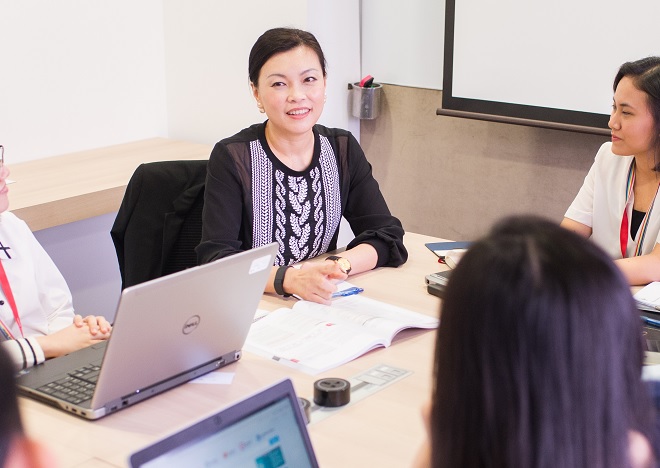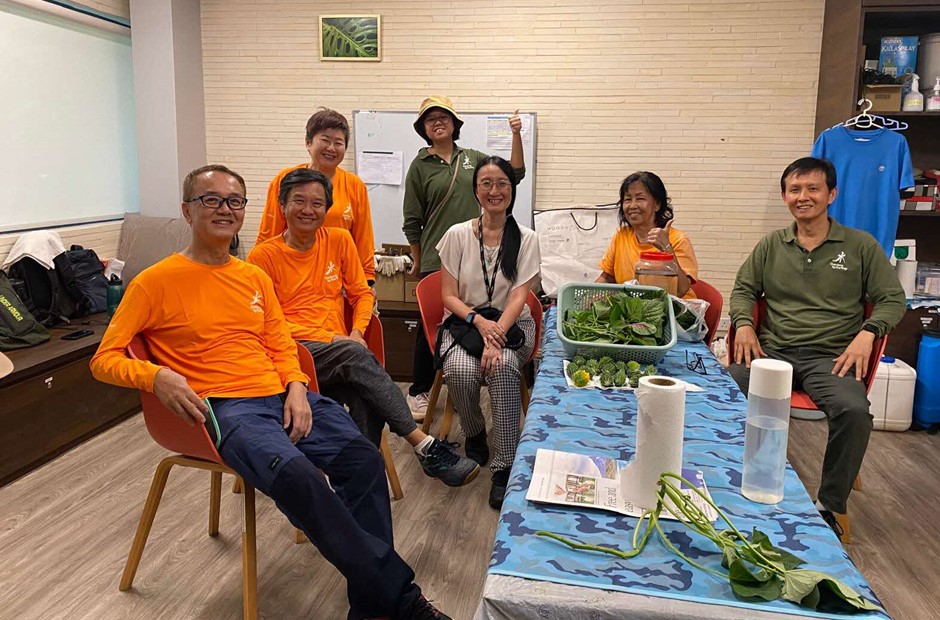Turning the strawberry generation into delicious strawberry tarts is Ms Aileen Tan’s aim. Hear what Singtel’s group director of Human Resource has to say about her days detecting land mines in Vietnam and why it’s necessary for young people to seize every available opportunity.
1. Who tends to be your most promising employees?
Those who display a high level of adversity quotient (AQ) and a willingness to learn are usually the ones who thrive.
One good example would be a young intern we once had who saw a learning opportunity in every task, including taking minutes for a meeting. A person without the right attitude might think that it’s a mundane job that is beneath his/her capacity. But this intern saw it as a chance to hear the perspectives of the attendees and learn from the way they present themselves.
2. What is “adversity quotient”?
Let me explain by sharing my “strawberry tart” analogy. Young people today are commonly regarded as “the strawberry generation”, with little resilience and tenacity. Like a strawberry, they get bruised easily when you apply pressure.
However, young people with a high adversity quotient can be shaped through training and challenging assignments into little strawberry tarts. They can be put through high heat in the oven. Once they sustain the pressure and the heat, they become delicious strawberry tarts.
3. Can you share a candidate who displayed very high adversity quotient?
Over 1,000 applicants are shortlisted for each batch of our Management Development Programme. The young applicants we meet like to tell us how well they have done in school.
But recently, we had a candidate who shared about how he barely made [it through] the PSLE. It made him realise that he had to work very hard to get to where he wanted. He went through the N-Level route, told his mum he would fund his own polytechnic education and became one of the top-performing students there. To afford school fees, he even started his own business doing door-to-door sales.
His candid sharing left a deep impression and we were pleased to meet someone who overcame challenges with great tenacity and passion.
4. Are most young Singaporeans ready to be “strawberry tarts”?
To a certain extent, a small group of Singaporeans are ready, especially if they had studied or worked abroad. They would have had a taste of being away from the comforts of home, and would be independent and adaptable.
However, some young Singaporeans can be selective about the destinations of overseas postings and prefer first world nations, such as the US and Australia, to developing countries, like India and Africa. Be it Africa or Australia, an overseas stint is a life-changing experience so young people shouldn’t be hesitant to step out of their comfort zones.
5. Did you have that opportunity when you first started out?
I headed to Vietnam in the early 1990s, and I remember we still had to “trace” landmines on the way to Song Be to clear the land for a factory. It wasn’t conventional or safe, but I was hungry. I saw it as an opportunity, not a hardship posting.
Making a decision to work in a foreign country turned out to be one of the best experiences in my life because you learn how to appreciate different cultures and deal with unknown challenges and factors.
6. Some young people don’t know yet what they want to do. How can they find out?
They can speak to their seniors, teachers/lecturers, career counsellors, relatives, and even friends. They can also attend career fairs. Another good way is to do an internship or apply for part-time jobs during the holidays to try out different areas of interest.
My daughter, for example, told me she wants to work for a year after attaining her diploma so she can find out and be sure if she wants to pursue a career in Digital Animation.
7. Digital Animation is still a relatively young industry in Singapore. Did you have any concerns when your daughter expressed her interest?
Of course, I have my fears. My biggest fear is that she would not be able to find a job and look after herself in future. Every mum has that same worry; I am no different.
I remember that my parents wanted me to be an engineer. If I had taken the path that they insisted I take, I would not be where I am today. However, my parents gave me the opportunity to decide on my career, and I should give my children the same.
8. How did you overcome your fears?
I saw how passionate my daughter was about what she wants to do, the research she had done and that she knew very clearly what she wanted to do, I realised something: she will survive and make it – with or without me.
[Dealing with] her situation is exactly how I look at my staff in Singtel. When I see an employee who is hungry, has aspirations and potential, and works hard to get there, I know that he/she is on the road to success.





cab507a7a8a66eb2afccc900c73e6f2e.jpg)
